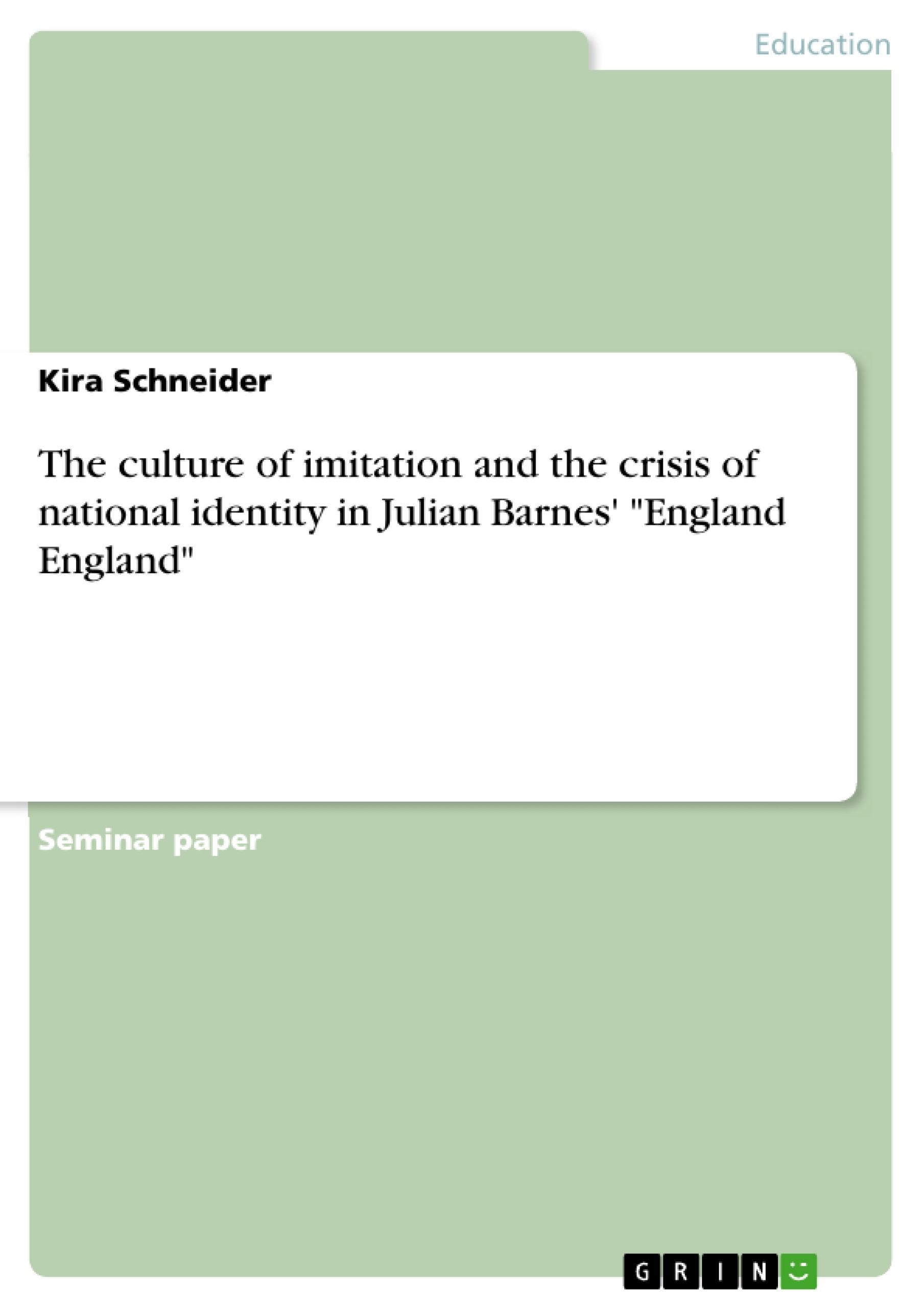In recent years, the concept of Englishness has received a lot of attention, in popular culture as well as in academic circles. Very often music, popular literature, fashion and lifestyles seem to be based on a general idea of a standard Englishness which has become favoured not only in England or Great Britain itself, but all around the world.
Few national identities are as thoroughly profiled in popular belief as the English, albeit those beliefs are often based on various wide-spread clichés about a nation, whose history has, in fact, always been marked by change. This has led to an academic interest in what about Englishness is cliché, what is really true and, above all, a definition of what Englishness is or may be; an issue that appears to be difficult, since even in terms of language Englishness is subject to a constant process of development and transformation, which is highly polarising some people, for instance, may welcome Multicultural London English as a new spoken variety, others reject it because to their minds, it replaces the original speech and ruins what they believe to be the ‘real’ or ‘true’ English.
The first group may then question the term ‘original’, because a century ago the language that is considered original now may have been new and replacing what was considered original back then. The problem shown in this example roughly illustrates the problem in general: a loss of the original that people are yearning to find and to determine, a quest which seems to never come to an end, causing a state of crisis.
This problem of authenticity is a recurrent motif in the work of Julian Barnes, who in his novel "England, England" explores Englishness in particular, the nature of traditions, of history and of (national) identity, and in how far they are invented or constructed. This work will focus on how the process of constructing traditions and identities is depicted in the novel and address the problems and crises linked to identity, authenticity and truth as raised by Julian Barnes.
Inhaltsverzeichnis (Table of Contents)
- Introduction
- Identities as stabilising mechanism
- What becomes of history and national heritage
- Invented traditions
- The Relation between the authentic and the replica
- Is there authenticity, truth and a beginning?
- Englishness equals heterogeneity
- Conclusion
Zielsetzung und Themenschwerpunkte (Objectives and Key Themes)
This essay examines how Julian Barnes' novel *England, England* explores the construction of Englishness, traditions, history, and national identity. It delves into the problematic nature of authenticity and the quest for a "true" English identity in a world increasingly marked by change and hybridity. The essay analyzes the novel's depiction of how traditions and identities are constructed and the crises associated with these processes.
- The construction of Englishness and national identity
- The role of tradition and history in shaping identity
- The concept of authenticity and its limitations
- The relationship between the real and the symbolic in national identity
- The impact of change and hybridity on notions of Englishness
Zusammenfassung der Kapitel (Chapter Summaries)
- Introduction: The essay begins by contextualizing the novel within the wider debate surrounding Englishness in contemporary culture and academia. It highlights the tensions surrounding the definition of Englishness and the search for an authentic national identity in a rapidly changing world. The essay then introduces Julian Barnes' *England, England* as a novel that explores these issues through the lens of constructed identities and traditions.
- Identities as a stabilizing mechanism: This chapter explores the importance of identity, specifically national identity, in providing a sense of order and coherence in human existence. It examines Lacan's theories of identification and symbolic networks, arguing that national identity functions as a "master-signifier" that helps individuals find their place within the symbolic order. The chapter also delves into the concept of the Imaginary, the Symbolic, and the Real, highlighting how the Real can threaten to destabilize constructed identities.
Schlüsselwörter (Keywords)
The key terms and concepts central to this essay include Englishness, national identity, authenticity, tradition, history, construction, symbolic network, Imaginary, Symbolic, Real, and hybridity. These terms frame the discussion of Julian Barnes' *England, England* and its exploration of the complex and often problematic nature of national identity in a world marked by change and globalization.
Frequently Asked Questions
What is the main theme of Julian Barnes' "England, England"?
The novel explores the construction of national identity, the nature of traditions, and the blurred lines between authenticity and replicas.
How does the novel depict the crisis of national identity?
It illustrates how "Englishness" is often based on clichés and invented traditions, leading to a state of crisis when the search for an "original" identity fails.
What role do "invented traditions" play in the story?
Barnes shows how history and heritage are reconstructed or even manufactured to create a stabilizing but artificial sense of order for the nation.
What is the relationship between the authentic and the replica in the book?
The novel questions whether a perfect replica can replace the original and whether "truth" in history is actually reachable or merely a social construct.
How does Barnes address the concept of "Englishness"?
He portrays it as a heterogeneous and constantly evolving variety, challenging those who reject modern changes in favor of a perceived "true" English past.
- Quote paper
- Kira Schneider (Author), 2013, The culture of imitation and the crisis of national identity in Julian Barnes' "England England", Munich, GRIN Verlag, https://www.grin.com/document/342521



